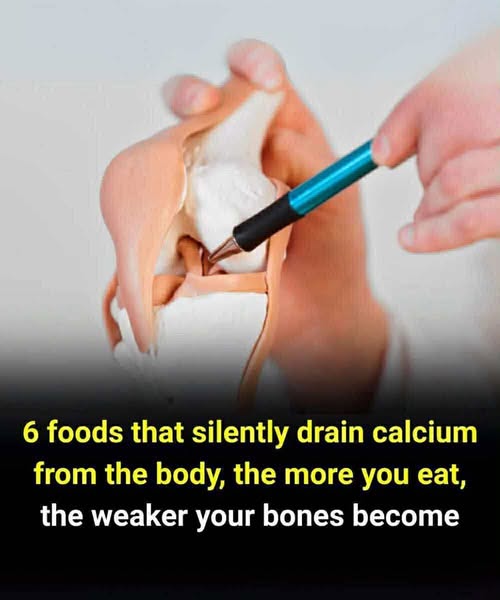
Calcium is vital not only for maintaining bone strength but also for ensuring the proper operation of the heart, muscles, and nerves. As stated by the Cleveland Clinic, it is the most prevalent mineral in the human body, with over 99% stored in bones and teeth to provide structural support. The remaining 1%—though minimal—plays a crucial role in muscle function, nerve signaling, and blood circulation. Since the body does not naturally produce calcium, it must be obtained through food, beverages, or supplements.
Nevertheless, certain foods can actually diminish your body’s calcium reserves, leading to weakened bones over time. A significant offender is soda, especially colas, which contain phosphoric acid that inhibits calcium absorption. The high sugar content in soda also elevates inflammation, further compromising bone strength. Substituting soda with healthier beverages such as herbal tea can help maintain your calcium levels.
Excessive sodium intake also negatively impacts calcium retention. Consuming salty foods—such as processed snacks, fast food, and packaged meals—results in increased calcium loss through urine. To mitigate this, it is advisable to lower salt intake in your meals and carefully examine nutrition labels to monitor sodium levels.
Caffeine is another element that depletes calcium. Present in coffee, tea, and energy drinks, caffeine leads to increased calcium excretion in urine. While consuming one or two cups of coffee daily is generally considered safe, excessive intake can gradually weaken bones and elevate the risk of fractures.
Alcohol, particularly in excessive quantities, can disrupt calcium absorption. It inhibits osteoblasts—the cells responsible for forming new bone—and reduces vitamin D levels, which are essential for calcium metabolism. Restricting alcohol consumption to one drink per day for women and two for men can aid in maintaining bone health.
Red and processed meats may also present risks. These types of meat are high in phosphorus, and when calcium intake is insufficient, it leads to an imbalance that can compromise bone strength. It is advisable to consume red meat in moderation and to focus on lean protein sources such as chicken, fish, or plant-based alternatives.
Finally, even nutritious foods like spinach and rhubarb contain oxalates that impede calcium absorption. Although they are healthy options, their oxalate content means that the calcium they offer is not entirely absorbed. Pairing them with low-oxalate, calcium-rich vegetables such as kale or broccoli can help ensure that your body receives the necessary nutrients.
